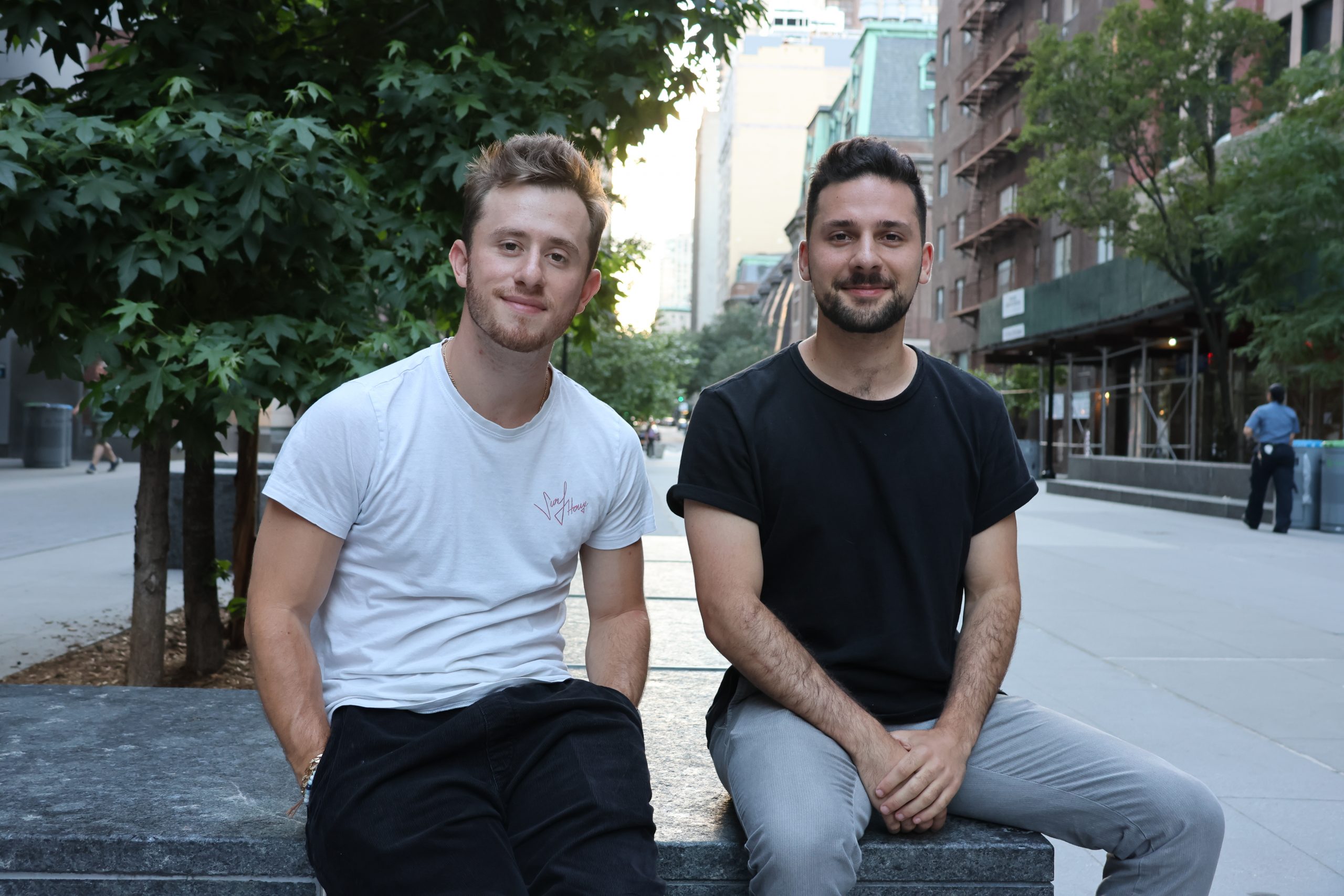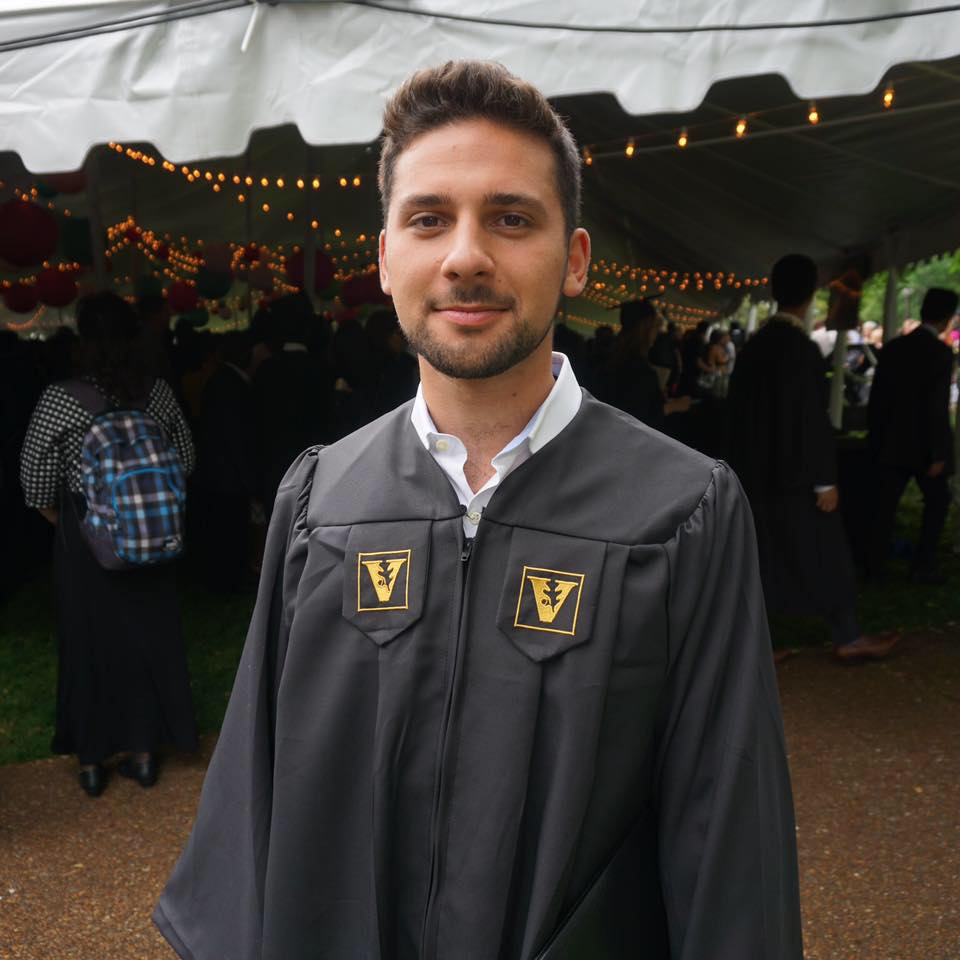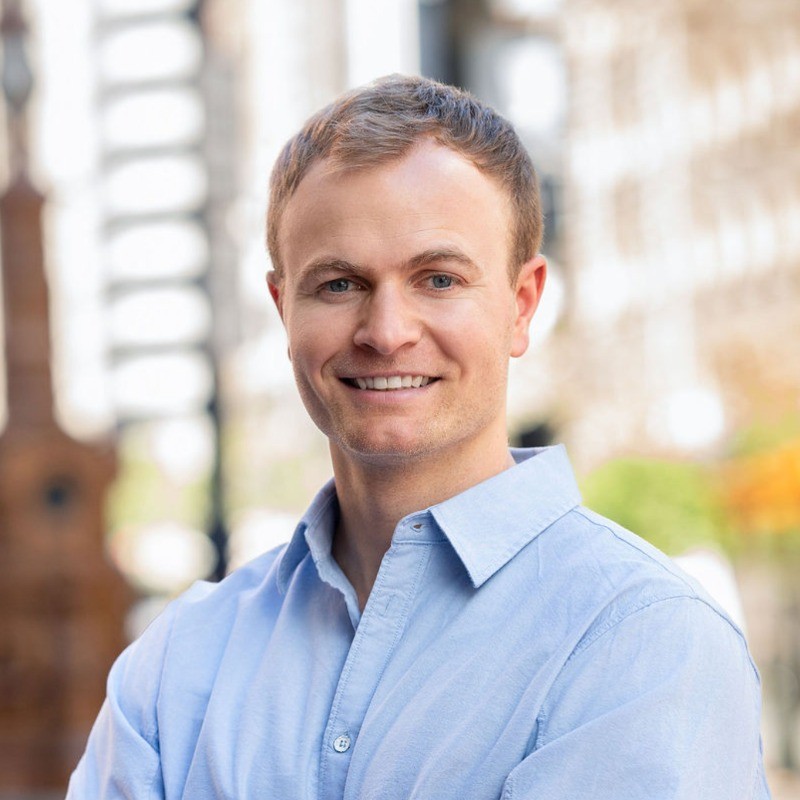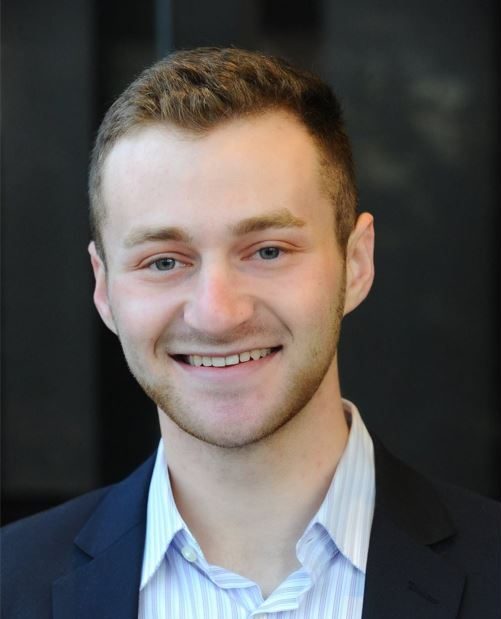By Jenna Somers and Mary-Lou Watkinson
Vanderbilt alumni Jake Aronskind, BA’19, Hayden Lekacz, BA’17, and Andrew Roth, BS’21, were named to the 2025 Forbes 30 Under 30 for creating and scaling successful businesses. Aronskind is CEO and co-founder of Pepper, a recipe sharing app. Lekacz is vice president at TPG, an asset management firm. They earned their bachelor’s degrees in economics from the College of Arts and Science. Roth is the CEO and founder of dcdx, a global marketing research and strategy firm. He earned his bachelor’s degree in human and organizational development from Peabody College of education and human development.
Jake Aronskind, BA’19, CEO and co-founder of Pepper
Sitting in his basement, Jake Aronskind, BA’19, watched his childhood best friend share a recipe with his college group chat. Instantly, an idea was born: create a collaborative, social cooking app where anyone could share their favorite recipes with friends.
Six months later, when the pandemic started and the rise of sourdough starters created a cooking movement, Aronskind and that same friend, Matt Schkolnick, decided to build that app: Pepper.

Pepper allows over 1.5 million community members the opportunity to not only share meals, but create digital social cookbooks, view standardized recipes, and search for specific dishes based on criteria such as ingredients, dietary restrictions, and difficulty.
Aronskind and Schkolnick’s efforts were recently recognized when they were named to the 2025 Forbes 30 Under 30 list for food and drink. While they are honored to be recognized, Aronskind said their goal has always been to foster connection around homemade food.
“Pepper is made for the everyday home cook; we are a grassroots community supporting everyone to share what they are cooking,” Aronskind said. “The many who have shared recipes on Pepper come to our platform for its inclusivity and approachability. We make you feel welcome no matter your skill, background, goals, or anything else.”
The name of the app comes from the fact that pepper is one of the most commonly used spices, right next to salt, and has a range of uses—something they hope their app reflects.

While Aronskind’s world revolves around cooking and recipes, he has always been logic-based and has naturally enjoyed numbers and writing code. After graduating from Vanderbilt with a major in economics and a minor in computer science, he combined his studies into a proprietary trading job. There, he bought and sold stocks by the minute—often aided by his homemade web scraper that pulled breaking news to help him with trades.
Aronskind credits Vanderbilt with giving him the flexibility to explore what he wanted to do while learning about the world around him and still completing his major requirements.
“I took astronomy, studio art, and sports economics, and spent four months studying in Spain. I was able to experience the world outside of my major before digging deeper into what would eventually become my profession upon graduation,” he said. “You truly never know the exact path you will take in life, so by taking advantage of the countless opportunities offered at every turn, you are able to prepare yourself for whatever may come. You only get out what you put into everything you do, so while at Vanderbilt, take advantage of everything that is offered.”
He continued, “Truly, Pepper would not be what it is today without the incredible network of friends I made at Vanderbilt. Individually, Vanderbilt was integral in helping craft my work ethic while giving me the space to discover new passions. Vanderbilt fostered the greatest setting for my education to flourish, and I take great pride in my education there.”
Looking ahead, Aronskind and Schkolnick want to continue fostering deep connections in their community by allowing members to publish their Pepper cookbooks into a physical copy. They also plan to streamline the recipe sharing process with an AI kitchen assistant and have recently launched a gamification feature to encourage community members to level up their cooking.
What is Aronskind’s long-term goal?
“For me, success looks like my grandchildren’s grandchildren opening Pepper to make my grandma’s eggplant parmesan recipe,” he said.
Hayden Lekacz, BA’17, investor at TPG

Hayden Lekacz, BA’17, has always been fascinated with how markets function, businesses grow, and financial and behavioral incentives shape decision-making.
His passion led him to TPG, an asset management firm where he previously helped lead the company’s late-stage venture group, TPG Tech Adjacencies. In this role, Lekacz focused on investing in high-growth, category-defining companies that are scaling rapidly—and his accomplishments have earned him a spot on the 2025 Forbes 30 Under 30 list for venture capital.
“My role at TPG involved sourcing and evaluating investment opportunities, conducting due diligence, structuring deals, and working closely with portfolio companies to drive strategic growth,” Lekacz said. “I joined TPG after developing a deep passion for investing in transformative businesses. My path into the firm was shaped by my background in economics at Vanderbilt and my experience evaluating high-growth companies at prior firms Spectrum Equity and Evercore.”
Lekacz credits Vanderbilt for not only shaping his analytical mindset and approach to problem solving, but also for instilling in him a sense of intellectual curiosity and adaptability.
“The rigorous academic environment challenged me to think critically, approach complex issues from multiple perspectives, and develop strong quantitative and communication skills,” he said. “The university’s emphasis on interdisciplinary learning also encouraged me to explore fields outside of economics, which has been valuable in assessing businesses across different industries. Markets change, industries evolve, and being able to continuously learn and adapt is a key factor in long-term success.”
For Lekacz, success in investing has required a combination of hard work, intellectual curiosity, and the ability to take calculated risks.
“I’m incredibly grateful for the opportunities I’ve had and excited about what’s ahead,” Lekacz said. “Being named to Forbes 30 Under 30 is an honor, but it’s just one step in a broader journey. The real impact comes from building great companies, supporting innovative founders, and driving meaningful change in the industries we invest in.”
Lekacz recently left TPG to found a new venture.
Andrew Roth, BS’21, CEO and founder of dcdx

How should brands attract Gen Z, a generation notoriously unmoved by marketing tactics? That question is foundational to dcdx, the global research and strategy firm whose success in helping companies market to Gen Z landed Andrew Roth, BS’21, on the 2025 Forbes 30 Under 30 list for marketing and advertising. dcdx works with major brands like Spotify, Chipotle, Hinge, Crocs, L’Oréal, and many more.
The name dcdx is a play on dy/dx, the derivative notation in calculus to measure the rate of change of Y with respect to X. The C in dcdx refers to the measurement of the rate of cultural change and how that affects young people’s relationship with the world around them, particularly their relationships with organizations.
It is fitting, then, that Roth conceived of dcdx in spring 2020, when, even as the world came to a standstill, culture was changing rapidly, and Gen Z was a major force affecting and affected by that change.
At the time, Roth was in the U.K. pursuing his capstone internship for his degree in human and organizational development when the pandemic abruptly sent him home. As he thought about rapid cultural shifts caused by the pandemic and the salience of the Black Lives Matter movement, it seemed like corporations were disconnected from the values and concerns of young people. Moreover, they didn’t understand how to learn about young people.
“It felt like the only way they were trying to reach us was through 60-question emailed surveys, but how effective was that for measuring my perception of what’s happening in the world? That question inspired me to create dcdx,” Roth said. “I wanted to explore how to design research in a human-centered way that speaks to how young people are communicating and behaving in the world.”
The company focuses on building “magnetic brands,” a term dcdx created to define brands that pull, rather than push, Gen Z towards them. Roth says magnetic brands position themselves within the culture and create conversation among the Gen Z cohort. dcdx researches young people’s online reactions and content related to these brands and offers their clients reports, insights, and strategies that enhance the clients’ brand identity.
Roth credits many of the lessons he learned from Vanderbilt’s human and organizational development program for informing his approach to dcdx.
“The HOD program taught me a lot about how to improve the effectiveness of organizations by focusing on the people at the core of those organizations, both as individuals and as groups. During the pandemic, I had some time to think about those lessons, which inspired part of the company’s philosophy,” Roth said.
Even though dcdx began with a focus on Gen Z, the company is now expanding market research across generations, including work on Millennials and Gen Alpha. According to Roth, the key to the future of dcdx is its unique approach to work, not who the work focuses on.
Roth feels honored to be named to the Forbes 30 Under 30 list. He hopes his story inspires current human and organizational development students to use their time in the program to hone their curiosity and creativity toward a venture that one day helps them make the list.
